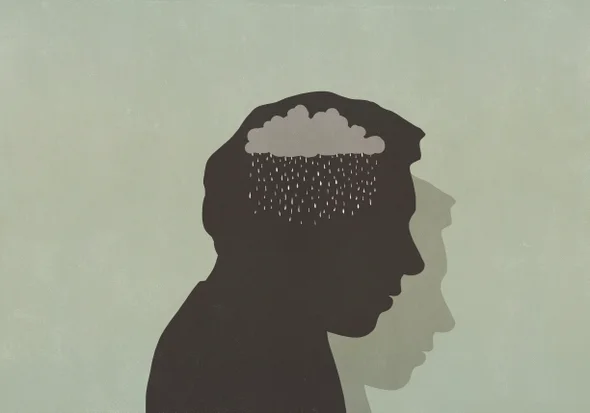Normalization of Depression

October 31, 2023
Depression is the feeling of severe despondency and dejection. Sadness is the condition or quality of being sad. Two words, two meanings, but being used to describe one feeling, so why is it passed around like a germ on a doorknob? Why is depression being used to describe a feeling, not an illness?
Mental illnesses have become more accepted than it has in the past. Talk of depression was avoided like the plague, yet now it is so normalized we use it as an emotion. The number of people suffering from mental illnesses has tripled from 2020 to 2021. According to The Brink, before the pandemic started, about 8.5% of adults in the United States had depression. As of 2021 27.8% are now suffering, about 1 in every 3 adults in America. Normalizing depression is better than not, but are we over-normalizing it? In short, the answer is yes.
Depression was a private topic for years, but now we see it as normal. Something that shouldn’t need to be hidden from others. Depression isn’t self-diagnosed, but people are self diagnosing. Many teens struggle with anxiety and stress, from school, home, or work. Many teens and adults confuse anxiety and stress with depression. Many people believe that they have depression when they begin to feel stressed and worn out.
There are nine different forms of depression, some more severe than others. The most severe depression is clinical depression, also known as major depression. This form of depression lasts longer, has more severe symptoms, and may be caused by traumatic events or genetics. According to Mayo Clinic, there are over 3 million US cases per year of clinical depression.
Over the years mental illnesses have become glorified by so many. Social media is one of the ways people are praising it. Many social media influencers will come out and tell their followers about how they have depression, yet it is later proven to be false. Faking illnesses has become a way for people to get views, followers, and more money. Many young people see this and want to relate to them, so they say they have depression as well. Similar to in school when someone states, “I’m tired” and you say “me too”, yet you aren’t tired it is just simply to be relatable. Depression is becoming too normalized. The more we misuse it the greater the value decreases.
Mental illnesses are not a feeling. Rather than a feeling or emotion being used, an illness is being placed instead. Depression is not normal, it is common. We must understand the difference and apply it.








